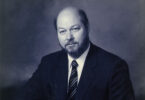That was the question posed by PRNewswer Editor Tonya Garcia in an article about what she called the “ongoing feud” between the J.R. O’Dwyer Company and PRSA.
To answer Ms. Garcia’s question, yes, I am tired of it. PRSA members also are tired of it, especially those who have been personally targeted by Publisher Jack O’Dwyer, but more on that later.
The latest shotgun blast in this “feud” stems from PRSA’s decision not to extend press credentials to Mr. O’Dwyer, which would have allowed him to “report” on our Leadership Assembly meeting and International Conference, which took place Oct. 15-18, in Orlando, Fla.
To be sure, this was an unprecedented step, and one we did not take lightly. We understood that we would face criticism from those who may not understand why an organization that represents public relations professionals would take an action that seems to fly in the face of established public relations tenets.
For this reason, we explained our position in a statement, in an extended conversation with Bill McCarren, executive director of the National Press Club, and in a 23-page letter sent to Mr. O’Dwyer, which outlined our concerns with his professional conduct. (The letter was at the link provided at the time of this writing.)
One of the many concerns we outlined is that Mr. O’Dwyer interferes with the employment and educational relationships of PRSA volunteers. Imagine, if you will, that you are the president of a PRSA Chapter, and you’re summoned to a meeting with your CEO and your organization’s legal counsel and HR director, and asked to explain who Jack O’Dwyer is, and why you shouldn’t be fired for volunteering your professional skills and time to an organization that’s as “unethical” as he claims. This happens routinely. And repeatedly.
Mr. O’Dwyer also investigates personal details in the private lives of PRSA leaders, including seeking information on their personal finances and minor children; harasses college students who are part of PRSSA; and surreptitiously accesses PRSA’s proprietary information systems and conference calls without our prior knowledge or consent, of which we have proof.
If your concern is that PRSA is picking and choosing which journalists can cover its events, that would be a fair criticism. We get it.
By no conventional definition, however, is Mr. O’Dwyer a reporter. He is a publisher and a salesman and, in his behavior toward PRSA, an activist. And admission to PRSA events with reporters’ credentials is restricted to journalists only, and not handed out to just anyone claiming title to their access and privileges.
Mr. O’Dwyer is, of course, free to write whatever he wants, much of which we consider to be biased and misleading, if not outright lies.
For example, he alleged in an article that the partner of a PRSA President died of AIDS — a disease which (rightly or wrongly) carries a strong social stigma — despite having been told specifically that AIDS was not the cause of death. Is that ethical journalistic conduct? If he worked at The New York Times, would he still have a job? At News of the World … maybe.
But let me be clear: This is not an issue of attempting to stifle negative coverage of PRSA. As noted above, Mr. O’Dwyer will write what he wants, and readers will judge for themselves the veracity of his claims and the integrity of his reporting. However, when he (or any journalist) actively harasses our members, or disrupts our events, or meddles in our business relationships, or violates established media policies that all other reporters willingly follow, one cannot reasonably excuse nor defend that behavior in the interest of protecting First Amendment rights.
Mr. O’Dwyer is an activist, and he has the right to be one. But much like the author of the “Sprint Really Sucks” blog would not be invited to attend the annual meeting of Sprint shareholders, so, too, does PRSA have the right to deny access to an activist who harasses our employees, volunteers and business partners.
Some of the comments on the PRSA-NY LinkedIn Group, where a discussion on this topic was initiated, appear to recognize this. “I’m not sure how excluding Jack is any different from any organization excluding muckrakers from its gathering. I’ve worked with Fortune 10 companies for years and we routinely exclude journalists from functions up to and including not sharing information with certain properties,” said one.
Another asks what is wrong about “extending invitations to a selection of journalists but not to all?”
These folks seem to recognize that the media environment has shifted dramatically. Not everyone who claims the mantle of journalist today is prepared to carry out the responsibilities associated with that title.
It’s telling that the Society of Professional Journalists (SPJ) recently invited Mr. O’Dwyer to resign his membership in that organization which, like PRSA, emphasizes ethical conduct on the part of its members.
In the face of Mr. O’Dwyer’s unrelenting attacks, PRSA occasionally will stop to set the record straight. But for the most part, he’s a “feud-er” without a willing “feud-ee.”
The fact is, we moved on long ago to the real issues that matter to us and the profession, such as advocating for the business value of public relations, speaking out about ethical transgressions on the part of public relations practitioners, promoting greater ethnic and gender diversity in our profession, working with the FTC and FDA on issues of interest to public relations professionals, and pushing for greater corporate communications training in MBA programs.
If the PRNewser article is any indication, the public relations profession is likewise ready to move on. So perhaps the better question for Ms. Garcia to ask is, why isn’t Mr. O’Dwyer?
Arthur Yann, APR, is PRSA’s vice president, public relations.
**UPDATE: PRSA has closed the comments on this blog post.







AMEN!
Well-said, Arthur, though I cringe at a parenthetical statement involving one of Jack’s cruelly offensive claims.
Describing AIDS as “a disease which (rightly or wrongly) carries a strong social stigma” goes further than you needed and risks undercutting a valid point by suggesting anyone could have valid reason for stigmatizing those with the disease or their relatives. It’s a reminder than words and details matter every time we communicate.
PRSA’s high-road approach took a slight detour there, in my view, though not one that should keep us from appreciating the direction chosen.
Thanks, Alan. Hindsight’s always 20/20, but you’re correct. I shouldn’t have left the impression that we equivocate on the prejudice and unfairness of that statement in attempting to explain the hurtful attacks Mr. O’Dwyer has published about our members.
For years prior to running for the PRSA national board of directors, I hesitated to run because of my fear of Jack O’Dwyer and what he might do to my business. I wanted to serve PRSA at this level, but had heard what JOD did to previous national board members’ careers and personal lives and wanted no part of that. Jack loves to rant about how PRSA can’t find willing candidates for national board service, but has he ever stopped to think why people hesitate to run for national office? I, for one, didn’t want his harassment. And sure enough, as soon as I announced my candidacy for the national board, Jack’s harassment started and culminated with absolute ugliness in DC. JOD has keyboard courage, but the reality is that when he is forced out from behind that facade, he’s like the Wizard of Oz. Nothing but a fake bully trying to scare everyone with his lies and nonsense.
Full disclosure: I am currently a member of the PRSA national board of directors.
It is clear that Jack O’Dwyer believes it is in HIS best interest to continue this feud. And why not? It seems to be working to his benefit, helping him to sell newsletters and keeping his name top-of-mind.
Truth be told, Mr. O’Dwyer does make some points that, on their face, appear to have some merit (lack of transparency at PRSA, the APR issue, and PRSA’s invisibility in representing the profession on the national stage, to name three). Wouldn’t an open dialogue, rather than the ongoing schoolyard rumble, be the more “adult” way of handling things?
John, you make a salient point in two regards. First, Mr. O’Dwyer does make certain points with which we agree. As you may recall, in 2009 the PRSA Board of Directors advanced a motion (defeated by the Assembly) to remove APR as a requirement for Board service. This aligned with Mr. O’Dwyer’s thinking on the matter. But in too many other cases, he simply creates the impression that his claims have merit, whether by quoting anonymous members, shopping for opinions in keeping with his own, ignoring PRSA’s side of the story, or printing things that simply aren’t true.
As far as PRSA’s presence on the national stage, please drop by our online newsroom (http://media.prsa.org) when you get a chance. We’ve posted many examples of PRSA leaders speaking out on behalf of the profession in national and international media, in interviews, op-eds, letters to the editor and comments posted on published articles.
To your last point, PRSA has made earnest attempts on a number of occasions to engage Mr. O’Dwyer in the very sort of dialogue you suggest (such the meeting last year with then Chair Gary McCormick and COO Bill Murray). But as you also noted, it’s in Mr. O’Dwyer’s best interest to continue the feud, so our attempts at engagement are a bit like howling into the wind.
Thanks for sharing your views.
Restricting someone from a meeting is a hard decision for anyone to make but especially for public relations professionals who adhere to a Code of Ethics as we do. Thank you for outlining the case here Arthur. I know I share your hope we can move on now.
As Mary Barber said in an earlier post, restricting someone from a meeting is a difficult decision – particularly in light of our profession. However, having been exposed to Mr. O’Dwyer’s unethical, unnecessary and downright hateful tactics personally over the years, I support PRSA’s decision to not grant media credentials to him for the 2011 Leadership Assembly.
Journalists – if that’s what we’re going to call him (though in my mind he’s a vendor) do not maliciously attack the very organizations they claim to cover. Were his line of questioning in any way objective, fair and unbiased, I’m certain PRSA would have no problem responding in an appropriate and timely manner. However, when Mr. O’Dwyer makes his attacks personal – (insinuating cause of death, threatening the employers of VOLUNTEER leaders, mocking an individuals medical condition, hacking into private conference calls or blatantly fabricating quotes), he loses the privilege of having the access traditionally afforded real journalists.
As for disclosure, I am NOT a National board member, yet have dealt with Mr. O’Dwyer while a Chapter president, District chair, Assembly delegate and International Conference co-chair.
Thank you, Arthur for posting this insightful – and crystal clear – rationale.
While serving as chair of PRSA’s Board of Ethics and Professional Standards, I became a target of Jack O’Dwyer (like so many other PRSA volunteers) after I would not respond to his unfounded threats. I suggested to PRSA that they tell members about their experiences with O’Dwyer spanning the past three decades. Unfortunately, PRSA decided not to share their experiences due to fear that volunteers and staff would continue to be bullied. It’s time, PRSA, to tell your side of this story. Some members will find your experiences hard to believe. Others may have suggestions that are worth exploring. Regardless, a majority of your members will respect you for being honest.
Thanks for your comment, Linda. PRSA’s “side” of the story is told in the 23-page letter we sent to Mr. O’Dwyer, which is available (as of now) at this link: http://ow.ly/7aII5. Some have asked why we didn’t publish this letter ourselves, but sending it privately to Mr. O’Dwyer and challenging him to make it public protects PRSA against possible legal action. While we’re certain there’s no merit to such a suit (we’ve simply used Mr. O’Dywer’s own words and actions against him), frivolous lawsuits are filed in this country every day, and we’d prefer to avoid that distraction.
Thank you, Brother Mark!
First, full disclosure: I have served my PRSA chapter as the Assembly delegate for four years, and have had to put up with O’Dwyer’s antics for longer than that. I have not served on the PRSA national board, and only one year on the board of the Health Academy.
It’s about time someone called Jack O’Dwyer out on his actions. Not only is he unethical, often he doesn’t even get his facts straight – nor does he seem to want to.
I got drawn into Jack O’Dwyer’s prolonged vendetta against PRSA when the question of the Accreditation requirement for national officers was being debated in the Assembly. I am not now and was not then a national leader, simply my chapter’s Assembly Delegate.
O’Dwyer made a nuisance of himself at that Assembly, attempting to talk delegates during the proceedings when we were trying to listen to the debates and making it difficult to hear…yet HIS difficulty hearing proceedings has been one of the endless complaints he has leveled against PRSA. It didn’t stop there. In the weeks leading up to the Assembly, he hacked into the delegates conference calls where we had the opportunity to ask questions to clarify the information we needed to present to our chapters and sections to decide how we as delegates were going to vote on the issue. Jack seized on a question I asked, then extrapolated from there to say I opposed the issue of requiring accreditation for national board members (when I actually voted
for it), lifted my LinkedIn photo to accompany the story, didn’t bother to actually talk to me BEFORE publishing the article, then sent me an email the morning he posted his article with the subject line “PLEASE talk to me.” Gee, I always understood that the interview happened first in the interview process, not after the article was published. Silly me!
What he wrote:
Delegate Debra Bethard-Caplick, of Dialectic PR, Chicago, posted Sept. 29 that “The (APR) arguments have been presented, the information in most cases are being relayed, discussed and voted on at the local chapter, section and district level, and the vote (at the Assembly) will happen.”
The arguments in the sequestered e-group cannot be relayed by delegates to non-delegates unless such delegates want to face prosecution by the Society for breaking the legal agreement (if they signed such an agreement).
[There is no such legal agreement – it’s one of O’Dwyer’s inventions.]
There are no binding “votes” being taken at any chapter that this website knows of. The Boston
chapter, for instance, polled its members and found 60% want to remove the APR rule. But the board is only taking that poll under advisement and will make its own decision.
[He knows of one such vote – because I said that my chapter was doing just that on the delegate calls and posted the same on the discussion boards he hacked into. And others said the same of their chapters and sections – Jack has selective hearing, as well as selective facts.]
Then, as if that wasn’t enough, he somehow obtained my personal email address and started spamming me at both emails with sales pitches for his services to the point where I had to block anything from his email address.
His original post said delegates had to sign an agreement not to disclose the substance of discussion: “The arguments in the sequestered e-group cannot be relayed by delegates to non-delegates unless such delegates want to face prosecution by the Society for breaking the legal agreement.” I He has since gone back and edited his post to include in this sentence the phrase “(if they signed such an agreement),” without disclosing that the article had been edited. As I pointed out at the time, there was never any such agreement, and in the four years I have been my chapter’s delegate to the Assembly, there never has been. I have a copy of that full article if anyone would care to see it.
Even prior to this, Jack O’Dwyer’s lurid “reporting” on PRSA often led me to wonder if we were attending the same event. Where PRSA is concerned, the man positively comes unhinged. His
vendetta with PRSA prevents him from being rational where the organization is concerned, and it’s been my personal experience that he will write and say whatever he can to cause damage to the organization, and will use anything he can, and invent what he can’t find with no regard for the truth or ethical behavior. He certainly tries to manipulate others in the pursuit of his vendetta, and doesn’t care about any personal or professional damage that he causes. He’s the PR version of the supermarket tabloid — you have to take what he writes with a whole salt cellar.
Like Linda, I too urged PRSA leaders to publicly tell the organization’s side of the story. I personally spoke to Bill Murray, the COO of the organization at the Assembly in Detroit, but his response was that PRSA was trying to take the high road in dealing with O’Dwyer. I am happy to see that enough has finally become enough for PRSA. I know none of us would counsel clients
to remain silent in the face of such a concerted assault on their reputation, and neither should PRSA.
When O’Dwyer decides to actually ACT like a reporter, then he’ll get treated like one. There’s no requirement that any organization must acquiesce to a hatchet job by someone claiming a reporter’s privileges. O’Dwyer has bullied PRSA and its members for as long as I can remember (I joined in 1990), and it’s well past time to stop putting up with him.
Debra Bethard-Caplick, MBA, APRPresident, Suburban Chicago Chapter
Very nicely stated Art. I applaud PRSA.
Honestly both parties are acting like 13 year olds. . .I take that back. . .like 10 year olds. Get over it on both sides and move on and be professionals.
I don’t see how finally refusing to remain silent in the face of O’Dwyer’s unfounded personal and professional attacks is acting like a 10 year old. Any crisis communicator would tell you that ignoring a situation does not make it go away. And I’m sorry, but calling all those who refuse to be cowed by his attacks childish is not professional behavior as I see it, it’s just adding fuel to the fire.
[…] ethical and unbiased. I’d like to invite you to view our organizational response ( http://ow.ly/7aZdz ), and see if it changes your opinion on the matter. Thanks for keeping an open mind. Posted by […]
Hello Arthur:
You asked at the end of your blog why don’t I “move on” as Tonya Garcia has suggested, to a topic other than seeking payment for O’Dwyer articles that were sold by the Society without my permission.
I feel the Society made a lot of money selling the articles from 1980 (and even a couple of years before that) to 1994 when I exposed the practice of selling authors’ articles without their permission.
All such articles were immediately removed and the Society joined the Copyright Clearance Center. The CCC does not allow “anthologizing” or selling groups of articles because this creates a “new work.” Since the Society could only sell individual articles and at a considerable price, the entire info-pack service was quickly closed.
Many of the articles sold by the Society were for “professional development,” meaning they helped you to do your job better. This aggravated the offense.
A dozen authors, including three college professors, hired a law firm. Advice was that it would cost hundreds of thousands of dollars to pursue our claims and the Society would no doubt launch a countersuit. None of the publishers would support the individual authors, apparently not wanting to go into battle vs. the Society.
Statue of Limitations Ran OutThe legal statute of limitations ran out in 1998 but not the ethical and moral one. Representatives of the Society should come to our office and look at the boxful of copied articles and start some form of restitution. It could give free ads, for instance, for the books of the three college professors that were copied. They are still alive.The Society should address this matter. Otherwise, people can ask how it can be the ethical leader of the PR industry worldwide with this on its record?I believe this directly addresses the question you raised in your posting.Isn’t the Society criticizing its own self when it criticizes me since it copied O’Dwyer articles for at least 14 years and most of those articles were authored by me? It didn’t find anything wrong with me or my articles then. If I was so bad, why did the Society deal with me at all?The Society and I “battled” all through the 1980s and 1990s but it did not resort to draconian policies. PR director Donna Peltier was only allowed to go to lunch with me three times from 1982-92 and each time COO Betsy Kovacs was present.I could give you a large list of negative stories about the Society from the 1980s and 1990s including the Silver Anvil controversy (hundreds of entries were rejected for minor violations) and the resignation of 1986 president Tony Franco after SEC charges were filed against him. I also publicized many Society programs.
Cordially,
Jack
As I’ve said before: A business dispute does not justify your behavior in the years since. Attempting to reach an end you feel acceptable does not justify personal attacks, spamming, inventing “facts,” and the other numerous unethical behaviors on your part that I and others have personally experienced.
I remember the situation with the articles. I also remember getting reminders to return those articles when I forgot to return them within the time specified, which I did. That is not “selling” articles.
Did you really, “allege in an article that the partner of a PRSA President died of AIDS — a disease which (rightly or wrongly) carries a strong social stigma — despite having been told specifically that AIDS was not the cause of death.”
Man, in my book, that disqualifies you from everything. That’s not a journalist, that’s an extremist. Why anyone would invite that sort of slander and abuse into their tent is beyond me.
Did you really, “allege in an article that the partner of a PRSA President died of AIDS — a disease which (rightly or wrongly) carries a strong social stigma — despite having been told specifically that AIDS was not the cause of death.”
Man, in my book, that disqualifies you from everything. That’s not a journalist, that’s an extremist. Why anyone would invite that sort of slander and abuse into their tent is beyond me.
[…] […]
[…] to PRSA’s thorough documentation of O’Dwyer’s unethical behavior and rationale for his lack of press credentials at the latest PRSA International Conference, O’Dwyer has […]
[…] […]